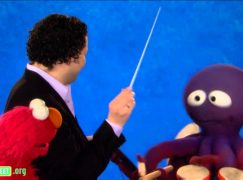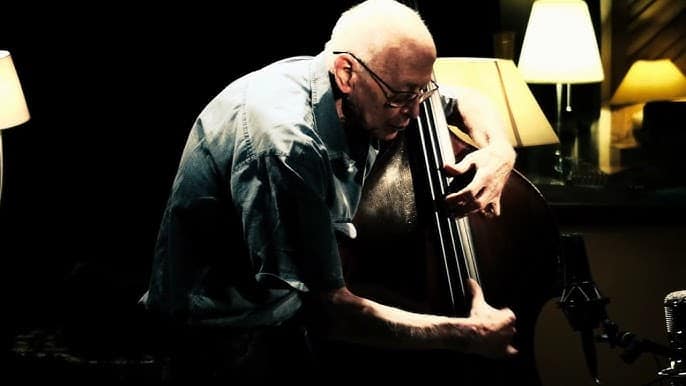Paris proposes to ban one-on-one music lessons to protect minors
mainA report commissioned by the Mayor of Paris, Anne Hidalgo, following 30 cases of sexual abuse of pupils across the city has recommended that conservatoires should end one-on-one music lessons as a child protection measure.
Music teachers are outraged.
Report here (en francais).







report where?
Here, for example:
http://lelab.europe1.fr/quand-linspection-generale-de-la-ville-de-paris-voulait-supprimer-les-cours-individuels-dans-les-conservatoires-a-cause-des-risques-dinfraction-sexuelle-2748710
You understand that I was asking about the missing link in the above article, right?
When someone on a blog writes “Report here” it usually is accompanied by an active link to the article being referenced.
That assumes proofreading.
Emil, go proofread your own site instead of constantly complaining here, on a news site from which you benefit but for which you pay nothing.
You are most tiresome.
Yet another French idiocy! What has happened to that country? Always coming up with ideas that are obviously ridiculous and ultimately causing more harm than good. If it would only be limited to music lessons, that would be bearable, but when one sees and experiences all of the rest: outrageous taxes, endless paperwork and forms to fill out for the smallest need, punishing success and those that made some money with yet another tax, a “wealth tax”, rigid labour laws and refusing most Sunday openings, refusal to accept even modest changes to the labour code, a generally prevailing attitude of, “the customer is always wrong”, endless and fruitless strikes due to no social dialogue, over 50% of the country engaged in state employment, looking down on entrepreneurship, poor education system not even able to teach their youth to speak English, in 2016 a vast percentage of educated youth proud to present themselves as communist militants and opposed to all business, a country that still smokes more than any other western nation and suffers high levels of lung disease due to this, arrogance and rudeness in more than 50% of dealings…and it goes on. They really need to wake up, as they have lost their charm and will soon be relegated to the dustbin of history.
But that is an entirely sensible resolution. Privacy is less important than some fundamental level of security and freedom for the student.
Music teachers who are incapable of suppressing their animalistic urges should be condemned to be locked-up in a studio for 24 hours and to have to listen non-stop to the collected orchestral works of Xenakis, fortissimo.
‘Privacy is less important than some fundamental level of security and freedom for the student.’
But music is more important.
I would suggest that five minutes of the music of John Borstlap would have a Pavlovian effect upon any listener.
Deeply offensive response, Borstlap, to both teachers and students. We know you don’t care about this issue, you just want your ‘ voice” to be heard yet again.
Agreed. And an egregious “stlap” in the face to Xenakis as well. Borstlap, you’re batting a thousand today.
I repudiate your petulant expostulations.
Not at all. In my student days, I was lucky enough to have normal contacts with teachers, but I knew there were ‘things’ going-on elsewhere at the conservatory which were quite distasteful. In France, where – according to tradition – morals are applied relatively more loosely than elsewhere (except the UK), a bit more care on this point merely seems worthwhile.
Why do you systematically have to make snide remarks on the composers you don’t like?
How old you? 8?
You know that trolls are losers, right?
BTW, between Xenakis and pseudo-Ravel music from a third rate reactionary composer, I’d take wihout hesitation Pithopratka, Metastaseis and Nuits. Any time.
You must have been teaching music in France.
Oh quelle ironie!!
You realize that you just chastised Mr. Borstlap for his comment regarding Xenakis, then promptly turned and demonstrated your own pro-modernist bias by taking a low-blow pot-shot at Mr. Borstlap’s music!
As usual, the only people who are permitted to denigrate any other type of music are the modernists, the absolute arbiters of what is acceptable and what is not in new music.
Thank you for your clairvoyant comment. And for the record: I have nothing against modernism (as sonic art) as such, but only against its ridiculous claims to be music, and against its aggressive attacks upon the competition, a mentality which deserves to be countered and ridiculed.
You’ve read it first, folks: our self-anointed master of good taste says “modernism” (whatever that is) in music isn’t music!
Tomorrow: Does jazz put sin in syncopation?
Next week: Are the Beatles satan worshippers?
Thank you, o master of good taste.
Is Mr. Borstlap the only one allowed here to comment on music?
I know that what he thinks… but if he’s allowed to make fun of music he doesn’t like, why can’t I do the same?
BTW, I have nothing against his third-rate music. People are free to listen to whatever they want.
Please feel free to expose your musical tastes…. I’m sure they will meet a lot of approval.
PS Preference for Xenakis over music completely undermines any credibility as to musical judgement….. ‘3rd rate music’ from a Xenakis lover is a great compliment.
Absolutely priceless!!! LOL
This is a step too far.
How about putting big windows on the studio doors?
Problematic in terms of acoustics.
no one cares about that in Paris municipal conservatoires, believe me
It ain’t like the old wooden door was sound proof.
It is certainly possible to craft a window that will suit this purpose
“How about putting big windows on the studio doors?”….or perhaps CCCTV cameras? good grief, can’t people just behave better?
Apparently they can’t if they think they won’t be observed.
Utterly pathetic idea. Typical of the idiots in charge of the Paris council.
What exactly are they proposing in its stead?
Two-students-one-teacher might not be so terrible, especially if the duration of lessons is increased.
On careful reflection I’m inclined to agree. Some of the more effective composition classes I’ve encountered have been a teacher + 2 or 3 student ratio. Instrumental teaching is another matter perhaps?
For instrumental lessons, it is perfectly feasible to have 2 or 3 students at a time, teaching each of them individually. It is very instructive to see / hear other students being taught, provided that such structure would not result in teaching one lessen for three (= cheaper for the institution), but having the same duration as three full lessons. The students would only benefit from it.
I agree 100%.
You see, when you stick to the topic, you can be both relevant and interesting.
“Two-students-one-teacher might not be so terrible…”
Are you suggesting a threesome? Well slap me silly and call me Sally.
In fact, I am considering piloting a similar procedure for instrumental and vocal lessons where I work from the next academic session, starting with piano.
To begin with,I am thinking about simply opening out the existing timetable/schdule for lessons which one student will be the focus of the lesson and one other student will be present as an observer, taking notes and contributing where appropriate.
I have found in feedback from students in my more general performance and specialist piano classes (which are attended by all students) that it is often when a student is observing someone else that a concept beomes clearer, particularly in the case of developing technique and posture (the latter being a complex and often contentious subject – notably with voice and string students, where many teacher feel that propfessional physical contact – in sorting out bow, fingerboard etc is necessary).
As for recording lessons on video; I have domne this for years as a basic modus operandum in all my classes for years and I think it is a great teaching tool.
Of course the idea has a venerable tradition in conservatoires – for example, the classes of Alfred Cortot, Edwin Fischer and Schnabel were conducted on the Gasthoerer model – not dissimilar to, but much more detailed than, masterclasses. There is some wonderful video and audio available of Cortot in action, for instance.
I do think, however, that to make a blanket ban on one-to-one is rather drastic, and goodness knows how teachers of young beginners in private practice would manage, but I think the concept has sense, if it makes us better and more imaginative teachers and it can be of real benefit for the pupil/student.
Voilà.
The agenda is this: Scientific research has fortified what was empirically known for a long time: musical training is most beneficial for the brain.
The neoliberal cancer that has befallen our western societies doesn’t want enlightened, critically thinking human beings. They want consuming imbeciles, who do as told.
So it is only logical to close down on the highest aspirations and best development strategies for the human conduction. Classical music instruction has to be reduced, it is dangerous for the establishment. (except for a few clowns needed for the entertainment)
it seems very unlikely that those eroding developments in Western societies are caused by some sort of ‘agenda’. Isn’t it merely the logical result of unhindered capitalism where everything is defined in financial terms? Where societies as a whole get richer, also the lower strata of society – i.e. the more primitive people, not necessarily the more poor – get into education, get jobs, climb upwards, and spread a materialist, anti-cultural mentality. Add to this the logic of numbers, and the average conformism of the human species, and anti-culture forces begin to take-on a size and an influence they never had.
This is not advocating a return to pre-1900 society, but merely indicates the downside of material, economic progress and the emancipation of ‘the masses’. The readjustment of a cultural balance will take a couple of generations, probably, if not more, and maybe it cannot be done. It may be that modern, democratic and free societies destroy their assets, unknowingly and unintentionally.
Just do what Neuhaus did and have all individual lessons take place in front of an audience
There are several interesting proposals here, but none of them goes far enough.
How about this: lessons for five students taught simultaneously by a team of five teachers, carefully selected to ensure maximum diversity of sexual identity and orientation, in fully transparent glass cubes surrounded by a specially trained group of watchful well-armed eunuchs? It’s not enough of course, but at least it would be a small step in the right direction.